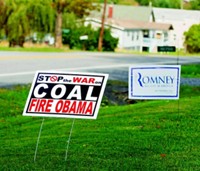Advertisement
Grab your lab coat. Let's get started
Welcome!
Welcome!
Create an account below to get 6 C&EN articles per month, receive newsletters and more - all free.
It seems this is your first time logging in online. Please enter the following information to continue.
As an ACS member you automatically get access to this site. All we need is few more details to create your reading experience.
Not you? Sign in with a different account.
Not you? Sign in with a different account.
ERROR 1
ERROR 1
ERROR 2
ERROR 2
ERROR 2
ERROR 2
ERROR 2
Password and Confirm password must match.
If you have an ACS member number, please enter it here so we can link this account to your membership. (optional)
ERROR 2
ACS values your privacy. By submitting your information, you are gaining access to C&EN and subscribing to our weekly newsletter. We use the information you provide to make your reading experience better, and we will never sell your data to third party members.
Policy
Douglas La Follette
Chemist-turned-politician ran low-budget gubernatorial campaign
by Carmen Drahl
May 14, 2012
| A version of this story appeared in
Volume 90, Issue 20

Calls to a gubernatorial candidate the week before a primary usually go straight to voice mail, or maybe to a harried intern. But not so with Wisconsin gubernatorial candidate Douglas J. La Follette; C&EN’s call reached La Follette’s own cell phone, which cut in and out as the candidate’s car crisscrossed Wisconsin hill country.
La Follette, who goes by Doug, is an organic chemistry Ph.D. who’s spent his career in politics. He mounted a no-frills campaign to unseat Wisconsin’s polarizing Republican governor, Scott Walker, in a recall election taking place June 5. La Follette, Wisconsin’s secretary of state since 1982, was one of four Democrats vying for a shot at Walker, whose 2011 gutting of unions’ collective bargaining rights put Wisconsin in the national spotlight (C&EN, Feb. 28, 2011, page 9).
Most coverage of La Follette’s campaign, which ended with a loss in the May 8 primary, duly notes his political pedigree—his grandfather was a cousin of Wisconsin governor and Progressive political icon Robert “Fighting Bob” La Follette Sr. But it was largely the younger La Follette’s convictions as an environmentalist that drew him into politics and that have arguably had the most impact.
After earning his doctorate with Columbia University’s Ronald Breslow, La Follette became an assistant professor at the University of Wisconsin, Parkside. While there, he originated a course in environmental science, was a Wisconsin organizer of the first Earth Day, and cofounded the environmental advocacy group now known as Clean Wisconsin. He then left academe to serve a term in the Wisconsin state Senate from 1972 to 1974.
“The whole environmental movement has gone through cycles,” he tells C&EN. “Right now we’re in a backlash period,” one that is driven by ordinary citizens as much as corporate interests, he adds. When environmental advocates argue for more bike riding and less air conditioner use, “ordinary people begin to wonder whether they really like the sound of all that” and are now speaking up.
Despite his own political successes, La Follette is somewhat cynical about how scientists’ skills can contribute to that arena. “People who are trained in science or have a predisposition toward science tend to be analytical and thoughtful, and they tend to try to solve problems,” he says. “Today’s political world is none of that. It’s all about ‘I gotcha’ and attack ads on television.
“Solving problems scares voters because issues are complicated,” he adds.
What’s more, he says, “our whole society has an antiscience, anti-intellectual attitude,” something that’s been cultivated carefully by special-interest groups. It’s hard for workaday scientists, especially those who are introverts, to counter those efforts, he says. “A lot of scientists would prefer not to be interviewed on television or to be out there talking to a local Lions Club. They prefer to be in their labs where they have control over things.”
That’s important for science, he notes, “but it creates a lack of science within the general milieu of the public, and that’s a problem.”
Throughout the primary, La Follette trailed front-runners by double digits, which has made him less of a Fighting Bob and more of a Ross Perot-type candidate. “I’m just an old warhorse that can’t quit,” La Follette says. He’s certainly colorful—he brought the windup toy cow that starred in one of his YouTube campaign ads to an April 30 press conference. And like Perot, he’s determined to bring attention to ideas that might otherwise go ignored, such as protecting the environment, as well as his distaste for fund-raising through political action committees, or PACs.
He’s got YouTube and other social media to help him. La Follette’s Facebook page last year saw nearly 3,000 friend requests when he used the power of his office to delay publishing Act 10, the bill that curtailed union rights. (Publication is required for a bill to become a new law in Wisconsin.)
“I think social media’s the only hope to rescue our democracy from super PACs and big money,” La Follette says. He is concerned that issues such as workers’ rights and the environment have taken a backseat to fund-raising in coverage of the election. He hopes that by accepting campaign contributions only from individuals, he has sent a message that politics can be done in a different way. “Maybe I’m on a fool’s errand, but I hope not,” he says.



Join the conversation
Contact the reporter
Submit a Letter to the Editor for publication
Engage with us on Twitter